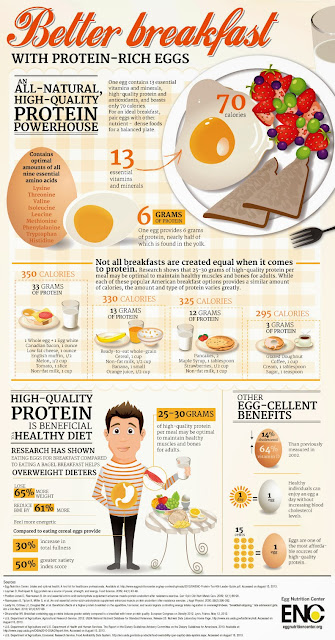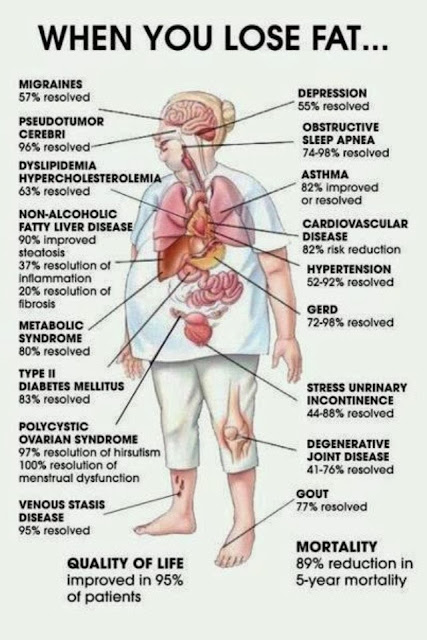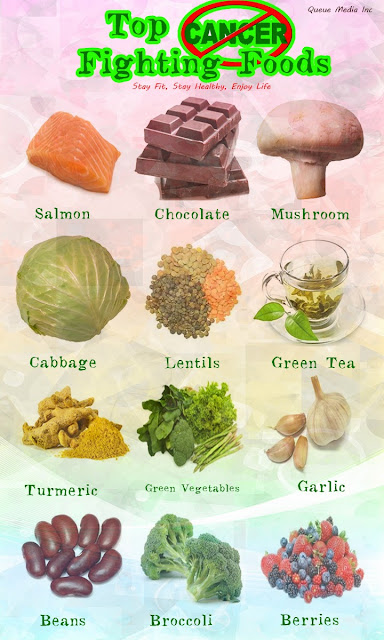What a healthy way to start your day with a perfect yoga sequence. Do these 8 asanas (yoga positions) and prepare yourself for with an energy that keeps you moving.
Monday, 4 November 2013
Sunday, 3 November 2013
Better Breakfast with Protein Rich Eggs
Doctors and Mothers insists that breakfast is the most important meal of the day. Whats better to start the most critical meal with a food pack with protein, vitamin D and 13 other minerals and vitamin and all this in just 70 Calories tag.
Egg Nutrition Center has created and "Egg cellent infographic" about taking an egg in every breakfast you have. Surely there are enough reasons for you to get stick with eggs or even addicted to them :)
Labels:
Breakfast,
Eggs,
Healthy Eating
Saturday, 2 November 2013
ABC Detox Drink
1 Apple + 1 Beet + 1 Carrot + 1/2 Lime
Juice them and drink quickly.
This juice cocktail is good for
- immune system
- acne & skin
- weak eyes
- blood pressure
- constipation
Labels:
Constipation,
Detox,
Juices and Smoothies,
Recipe
Friday, 1 November 2013
Thursday, 31 October 2013
Wednesday, 30 October 2013
Alkaline Diet Vegetable Broth Recipe
By Cathy Wong
About.com
An alkaline diet is a diet that emphasizes, to a varying degree, fresh fruit, vegetables, roots and tubers, nuts, and legumes.
This vegetable broth fits the guidelines of the alkaline diet.
Ingredients:
- 2 cups spinach
- 2 cups broccoli heads
- 2 quarts distilled water
- 3 cups celery stalk
- 2 cups red-skinned organic potato peels, 1/2 inch thick
- 1 small zucchini
Instructions:
- Chop all the vegetables into very fine pieces.
- Place them in the water and bring to a boil with the lid on.
- Lower the heat and simmer for 20 to 30 minutes.
- Strain and drink the broth.
This broth will keep for 3 days in the refrigerator. It may also be made in larger quantities and frozen.
Labels:
Alkaline Diet,
Recipe
Tuesday, 29 October 2013
Monday, 28 October 2013
Cardio / Strenght Workout
- 30 Jumping Jacks
- 05 Pushups
- 25 High Knees
- 07 Burpees
- 10 Crunches
- 07 Squats
- 05 Pushups
- 10 Crunches
- 05 Pushups
- 07 Squats
- 30 Jumping Jacks
- 01 Minute Wall Sit
- 05 Pushups
- 25 High Knees
Repeat 2-3 times for maximum results
Labels:
Cardio,
Exercise and Workout
Sunday, 27 October 2013
Kale Health Facts
Did you know
That a single cup serving of kale has almost as much vitamin C as an orange and as much calcium as a cup of milk?
Kale contained in fibre and antioxidants, and is one of the best source of vitamin A, which promotes eye and skin health and helps strengthen your immune system
Dr Joseph Merco
Labels:
Healthy Eating,
Kale,
Vegetable
5 Tips For Steady Daily Energy
1. Hydration: Did you know that most of us walk around in a state of slight dehydration daily? True statement. And then we wonder why we feel so tired. Ladies and Gentlemen we are made up of 60% to 70% water! That is correct over half of our body is comprised of H20. So if we want a daily steady energy output, there must be a daily steady H20 input!
Caution! Be on the look out for hydration thieves in your daily routine such as caffeine, carbonated beverages and humid weather. These items rob your body of precious hydration and can lead to the mid day drag.
2. Big Meal vs. Mini Bites: If you have a big meal at lunch then you should be prepared for a drowsy afternoon. This is especially true of a big carbohydrate meal such as pizza, pasta and white rice dishes. Instead, make time for small meals spaced no more than four to five hours apart.
Tip, you can achieve this by bringing some healthy mini meals/snacks to work such as fruits, raw nuts and vegetables. Have a snack in the late morning, a smaller portioned lunch with the focus on protein and some complex carbohydrates, and then another snack/mini meal in the late afternoon.
3. Breathing: Did you know most of us do not consume enough of another major life sustaining element? Oxygen! The volume of oxygen we take in is directly related to the function of our emotional and physical well being. Inefficient or shallow breathing typically caused by lack of fitness, stress and tension also contributes to low energy. Shallow breathing affects digestion and can lead to constipation. Now that can REALLY make us feel sluggish. Shallow breathing is also linked to depression. So breathe more deeply for health and energy!
Tip, here's a simple way to get more air. At the top of EVERY hour throughout your workday, take one long deep breath. It helps with stress, digestion AND energy. Try it for a day and see for yourself!
4. Movement: Get up and move. Increased circulation does wonders for our bodies. Movement helps increase circulation which then aids our body in removing toxins and waste from our systems. So to keep from feeling bogged down, GET UP AND MOVE.
Tip, take the stairs at work if possible or get up 30 minutes earlier in the morning and take a brisk walk in your neighborhood... movement does for the body what opening a window does for a room full of stagnant air. Circulate, circulate, circulate.
5. Rest to Restore: Sleep is essential for maintaining optimal energy. We are all diligent with money because we THINK, "we need it to survive". Here is your eye opening newsflash. You really do need sleep to survive. Lack of rest leads to poor concentration, low energy levels and motivational decline. And consistent sleep deprivation can lead to many physical health problems. For the state of your own performance and wellbeing, it is time to start valuing your body's requirement for rest as much as you do your finances. So how about reinvesting in your restoration?
Tip, give yourself five to ten minutes to unwind and release tension BEFORE getting into bed. Do a five-minute meditation. Lay on the floor to release the thoughts and events of the day and take some deep breathes. This allows the body to release physical and mental tensions. Now because you have already processed and released your day in a different location, when you get into bed your mind will register sleep with the action.
OK folks so there you have it, five easy items: more water, more movement, smaller bites, more breath and some extra zzzzz's and you're on your way! These are small but invaluable adjustments for optimum energy. If you truly desire more consistent energy, it's worth making the commitment of adding these tips to your daily routine.
Saturday, 26 October 2013
Friday, 25 October 2013
The most dangerous mistake you can make during flu season
NEW YORK: It's that time of year again. Flu season is upon us, marked by public health campaigns and reminders to get vaccinated.
Every year, up to 5 million people worldwide fall severely ill due to influenza (flu), resulting in about 250,000 to 500,000 deaths. In the United States alone, nearly 111 million workdays are lost every season due to the flu. That equals approximately $7 billion per year in sick days and lost productivity.
Flu is a highly infectious disease that is caused by a virus. It spreads rapidly through droplets coughed or sneezed into the air by an infected person. It is common, unpleasant and potentially fatal. Flu vaccines provide effective, though not universal, protection against the flu.
But despite public awareness campaigns in the United States and Europe, many people persist in the mistaken belief that antibacterial drugs — like amoxicillin and azithromycin — are the best treatment for flu. And many doctors simply surrender when patients demand them, ignoring the scientific and medical truth: when treating the flu, antibacterial drugs just don't work.
A recent European survey showed that half of all respondents wrongly believed that "antibiotics" are effective against the common cold and flu. (Although widely used, the term "antibiotics" is a misnomer.
Strictly speaking antibiotics only occur naturally and, as the vast majority of pharmaceuticals are man-made, we should describe them collectively as antimicrobials specifying the type of microbe that they intend to affect — antibacterial, antiviral, antifungal.)
The results from surveys in other countries such as the United States and Australia are similar. Antibacterial drugs work against bacteria, not viruses. Flu is a viral infectious disease.
Antibacterial drugs are not only ineffective against flu, but they are also harmful for three reasons. First, any drug can give rise to an adverse reaction, which in rare cases can be severe.
It is common for antibacterials to cause diarrhea, but in 1 in 10,000 cases they may also result in anaphylaxis, an allergic reaction that is potentially life-threatening if not quickly treated. Second, drugs cost money and the use of drugs that don't work is a waste of money.
In the United States one study estimated that over $1 billion was spent annually on 41 million unnecessary antibacterial prescriptions for adult upper respiratory infections. Third and most importantly, every time you take an antibacterial drug, sensitive bacteria are killed, but resistant bugs are left to grow and multiply.
The misuse of these drugs has made antimicrobial resistance a global threat, so it is important that antibacterials are only used when they are likely to be of benefit in the treatment of an infection. This means knowing which infection you have and which drug is most likely to defeat that strain of infection.
The ineffectiveness of antibacterial drugs in treating influenza has long been known to scientists, doctors and healthcare professionals. But, as we have seen, that information has yet to spread broadly enough to affect the behavior of would-be patients and clinicians alike.
A study by RAND researchers showed that doctors were more likely to inappropriately prescribe antibacterial drugs to kids if they thought that the parents expected them.
A number of public health campaigns have tried to raise public and professional awareness. Since 2002 the French have run the Antibiotiques c'est pas automatique (Antibiotics are not automatic) campaign.
Similarly, the U.S. Centers for Disease Control and Prevention has been running the annual campaign Get Smart: Know when antibiotics work since 1995 with the aim of decreasing demand for antimicrobials among healthy adults and parents of young children.
Both the French and U.S. campaigns have contributed to a drop of about a quarter in the number of antibacterial drugs that were being prescribed, with the biggest fall in children.
While the impact of the public awareness campaigns on reducing inappropriate prescriptions should be celebrated, healthcare professionals are mis-prescribing antibacterial drugs for influenza, and we still expect them when we're ill. So as we enter flu season we all have a responsibility.
Don't ask for drugs that don't work — it is dangerous and antisocial. (Reuters)
Labels:
Flu,
Vaccination
Wednesday, 23 October 2013
Over 9.3 lakh TB patients in India undetected: Report
LONDON: Over 9.3 lakh Indians with the world’s most dangerous air borne disease – tuberculosis, are currently going undetected and being ‘missed’ by the country’s health system. Around 3 million people - equal to one in three people falling ill with TB are not being detected globally.
What is bad news for India is that 31% of those are in India. India is presently home to around 26% of the world TB patients – 1 in 4 globally.
World Health Organisation’s World TB Report 2013 released on Wednesday said 75% of the estimated missed cases – people who were either not diagnosed or diagnosed but not reported were in 12 countries.
In order of total numbers, India led the list followed by South Africa, Bangladesh, Pakistan, Indonesia, China, Congo, Mozambique, Nigeria, Ethiopia, Philippines and Myanmar. There were an estimated 4.5 lakh new cases of multi drug resistant TB (MDR-TB) worldwide in 2012. More than half of these cases were in India, China and the Russian Federation.
Around 94,000 TB patients eligible for multi-drug resistant (MDR-TB) treatment were detected in 2012: 84,000 people with confirmed MDR-TB (resistance to both rifampicin, the most powerful TB drug and isoniazid), along with 10,000 with rifampicin resistance detected using Xpert MTB/RIF.
This was a 42% increase in detected cases eligible for treatment compared with 2011.
Another bad news for India is that the largest increases between 2011 and 2012 were in India, South Africa and Ukraine.
India saw 2.7 lakh deaths caused by TB in 2012.
India and South Africa together accounted for about one-third of global TB deaths.
The five countries with the largest number of incident cases in 2012 were India (2 million), China (0.9 million), South Africa (0.4 million), Indonesia (0.4 million) and Pakistan (0.3 million).
India and China alone accounted for 26% and 12% of global cases, respectively.
Of the 8.6 million incident cases, an estimated 0.5 million were children and 2.9 million occurred among women.
Dr Mario Raviglione, WHO director of the Global TB Programme said “far too many people are still missing out on such care and are suffering as a result. They are not diagnosed, or not treated, or information on the quality of care they receive is unknown. WHO estimates that 75% of the three million missed cases are in 12 countries”.
WHO recommends priority actions that could make a rapid difference between now and 2015.
“Reach the 3 million TB cases missed in national notification systems by expanding access to quality testing and care services across all relevant public, private or community based providers, including hospitals and NGOs which serve large proportions of populations at risk”.
WHO also calls countries to “address with urgency the MDR-TB crisis. Failure to test and treat all those ill with MDR-TB carries public health risks and grave consequences for those affected. Intensify and build on TB-HIV successes to get as close as possible to full antiretroviral therapy (ART) coverage for people co-infected with TB and HIV,” the report says.
TB treatment has saved the lives of more than 22 million people, according to the WHO.
The report also reveals that the number of people ill with TB fell in 2012 to 8.6 million, with global TB deaths also decreasing to 1.3 million. While the number of people detected worldwide with rapid diagnostic tests increased by more than 40% to 94 000 in 2012, three out of four MDR-TB cases still remain without a diagnosis, warned WHO.
Even more worrying, around 16000 MDR-TB cases reported to WHO in 2012 were not put on treatment, with long waiting lists increasingly becoming a problem.
“The unmet demand for a full-scale and quality response to multidrug-resistant tuberculosis is a real public health crisis,” says Dr Raviglione. “It is unacceptable that increased access to diagnosis is not being matched by increased access to MDR-TB care. We have patients diagnosed but not enough drug supplies or trained people to treat them. The alert on antimicrobial resistance has been sounded; now is the time to act to halt drug-resistant TB.”
A further challenge identified relates to the TB and HIV co-epidemic with less than 60% receiving antiretroviral drugs in 2012.
Tuesday, 22 October 2013
Monday, 21 October 2013
Sunday, 20 October 2013
Friday, 18 October 2013
Thursday, 17 October 2013
Being fat is not your fault! Doctors ordered to stop blaming patients for obesity and use "respectful" tone
By Marie Kierans
Daily Mirror
- Official guidelines urge professionals to "minimise harm" by being aware of the stigma that overweight adults feel
Doctors should avoid blaming patients for being fat, official guidelines published yesterday say.
The tone used to discuss obesity should be “respectful” and “non-blaming” to “minimise harm”, the National Institute for Health and Care Excellence advised.
More than a quarter of adults are now classified as obese, with 41% or men and 33% of women overweight.
Professor Mike Kelly, of Nice, said: “Being overweight can also affect people’s mental health as a result of stigma and bullying.”
The guidance said professionals should “be aware of the effort needed to lose weight and avoid further weight gain and the stigma adults who are overweight or obese may feel or experience”.
It says: “Ensure the tone and content of all communications or dialogue is respectful and non-blaming.”
Stress should be put on the “importance of making gradual, long-term changes to their eating habits and physical activity and how much weight they might realistically expect to lose in total and on a weekly basis if they adhere to the programme”.
Tam Fry of the National Obesity Forum added that patients were often in denial about their weight “because, in our society, obesity has become the norm”.
He adde: "They could say ‘I’m not obese, doctor. Look at all the people around me - I’m the same as them’."
Wednesday, 16 October 2013
Tuesday, 15 October 2013
Monday, 14 October 2013
Sunday, 13 October 2013
Saturday, 12 October 2013
Friday, 11 October 2013
Subscribe to:
Comments (Atom)

















































